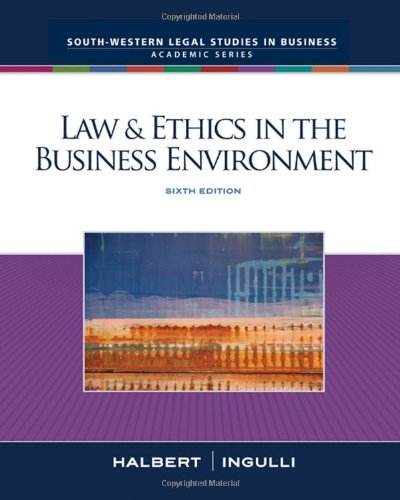In the mid-1990s villagers brought suit against the multinational energy giant, Unocal, for atrocities committed during the
Question:
In the mid-1990s villagers brought suit against the multinational energy giant, Unocal, for atrocities committed during the laying of a pipeline in Southeast Asia. There were allegations of forced land compensation and forced labor, with the Myanmar military threatening to kill those who would resist. There was testimony that one man was shot as he tried to escape the project, and in retaliation his wife and child were thrown into a fire; the baby died. Other witnesses described how villagers who would not work or who became too weak to work were summarily executed.
Plaintiffs brought suit under a federal statute, the Alien Tort Claims Act (ATCA), which allows non-citizens to sue in the U.S. courts for wrongs committed in violation of the law of nations. The defendants in most ATCA cases are foreign states or officials. For example, the statute was the basis of large—though uncollected—awards for human rights abuses committed by the former dictator of the Philippines Ferdinand Marcos and the Bosnian Serb leader Radovan Karadic. The case against Unocal, however, was an attempt to hold global business interests responsible for allowing human rights violations to occur. The claim was that the firm knowingly looked the other way as the military regime in Myanmar oversaw the construction of their pipeline, using rape and torture to intimidate the local villagers into working on the project.
As the Unocal case was ongoing, in 2004 the U.S. Supreme Court held that ATCA cases had to involve human rights violations that are “specific, universal and obligatory” under international law—crimes like genocide, enslavement, or torture. Both sides in the Unocal case described the Supreme Court ruling as boding well for them. Defense attorneys stated that, in the absence of any direct involvement in atrocities, their clients were not responsible under ATCA, whereas plaintiffs’ lawyer Dan Stormer forecasted the case would move on to trial: “We have slavery, we have torture, we have crimes against humanity as part of our claim. They can pound the table all they want but we are going to get to argue this case.”
The outcome of the case against Unocal would be closely watched, partly because several other corporations were facing charges under ATCA, including ExxonMobil, Royal Dutch/
Shell, and ChevronTexaco.
Step by Step Answer:

Law And Ethics In The Business Environment
ISBN: 9780324657326
6th Edition
Authors: Terry Halbert , Elaine Ingulli





